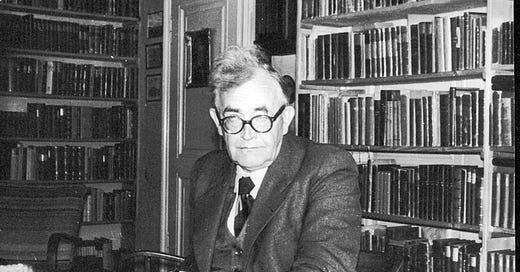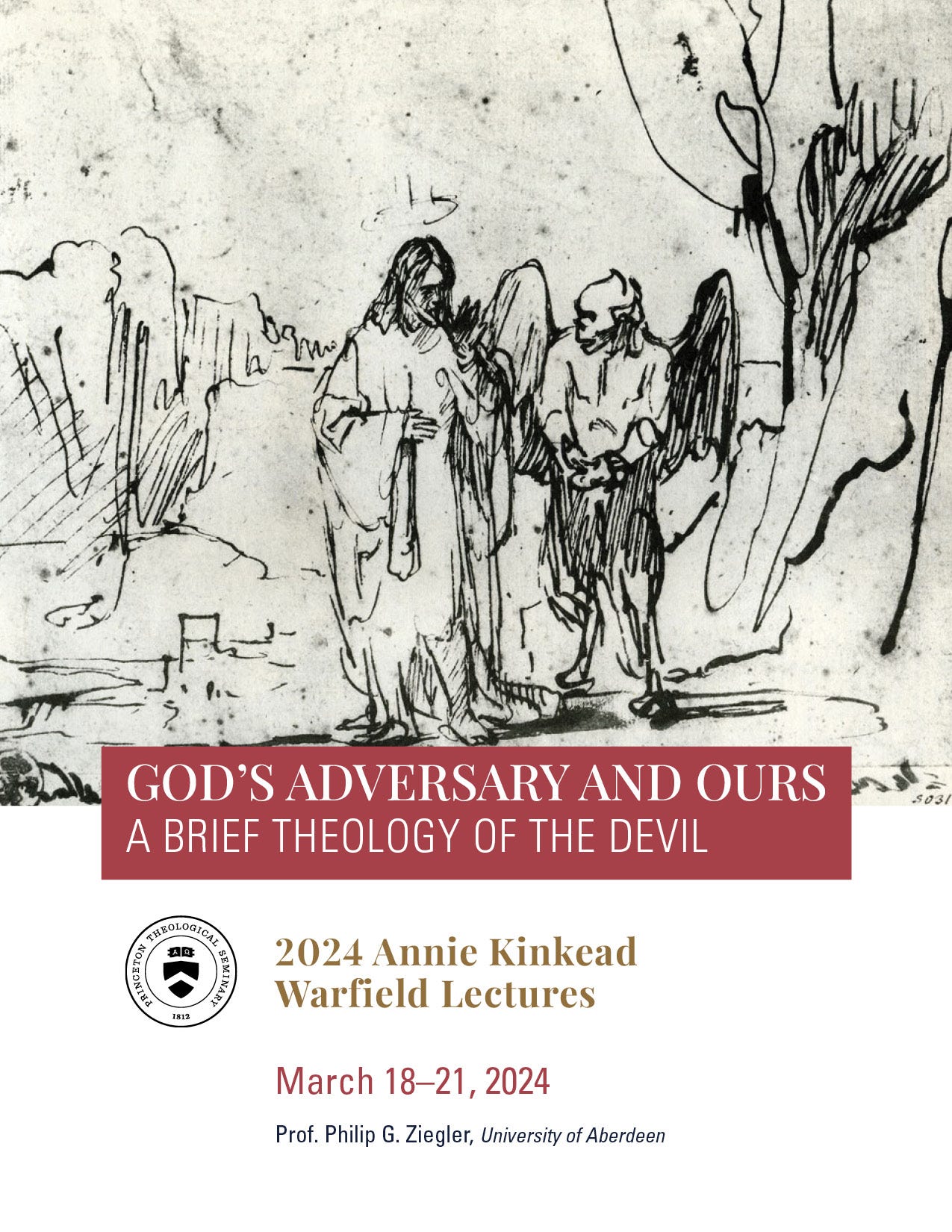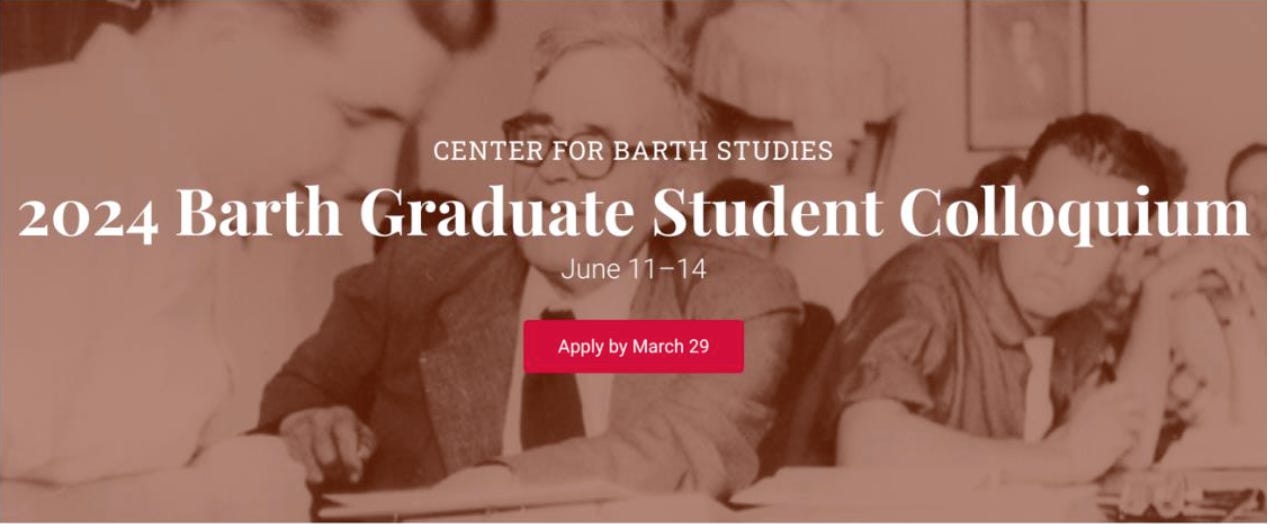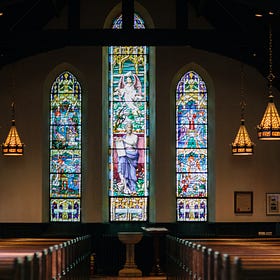Since we started this online magazine last fall, I have been amazed at the interest in and support for this project. My hope for God Here and Now was to cultivate a space where writers could freely engage a variety of questions from a theological perspective. I also wanted writers to feel free to engage Barth as much or as little as they wanted to. The intention of this space was not to just read and engage Barth, but rather to do theology in the spirit of Barth, and thus think beyond him for theological questions in the here and now. I think, if I can be so bold to say, that we have succeeded in beginning to cultivate such a virtual space for readers. And I hope God Here and Now continues to grow and flourish.
Over the last several months, I have tried to listen and be attentive to feedback received from colleagues and friends. The feedback I received in November inspired me to change our workflow so that you would only receive emails once a week through what we call “Weekly Round-ups.” This weekly emails update you about the essays that were posted throughout the week as well as links to various things I’ve found interesting around Al Gore’s internet on topics of theology, politics, and culture. But after receiving recent feedback from my incredible student assistants, I’ve made the decision to shift our workflow again going forward. We have not received as much engagement from our posts since we moved to emailing Weekly Round-ups. And sustaining what essentially amounts to three pieces a week is a heavy lift for both my team and me.
For this reason, you will now receive two emails every week on Monday and Tuesday with new essays from our writers. Once a month, I’ll send out an email update with news about the Barth Center, and other announcements.
I appreciate you bearing with us as we continue to figure out our rhythm. We have so much in store in the coming months from this online magazine to our forthcoming podcast to our many events this summer. Stay tuned for my monthly emails to learn more about all of this. Until then, thank you for your support. You make this work worth it.
— Kait Dugan, Director
God Here & Now is the online magazine of the Center for Barth Studies at Princeton Theological Seminary
Announcing: 2024 Annie Kinkead Warfield Lectures
Can’t make it to Princeton? Free virtual registration is available! If you want to access the recordings after the conference, prior registration is required.
2024 Barth Graduate Student Colloquium
The Center for Barth Studies at Princeton Theological Seminary is pleased to announce the sixth Karl Barth Graduate Student Colloquium to be held on June 11–14, 2024 at Princeton Theological Seminary. In celebration of the 90th anniversary of the Barmen Declaration, this year’s theme is centered around critical engagement with this confessional statement. The colloquium will share two common texts for the 2024 meeting including The Barmen Declaration and Eberhard Busch’s The Barmen Theses Then and Now.
We are inviting current graduate students and recent graduates in the disciplines of theology, ethics, biblical studies, religion, and political theology/philosophy. While we expect that all applicants will closely read the assigned common texts in advance of the colloquium, paper topics are for the participants own choosing insofar as they engage themes relevant to the topic of the colloquium. Papers, therefore, are encouraged to be primarily constructive and thesis-driven, not exegetical. We hope that this set-up will foster fruitful and constructive conversations about the merits, utility, and limits of this confessional statement for questions in the here and now. Potential paper topics include but are not limited to the following: nationalism, idolatry, ideology, ecumenism, Church creeds and confessions, prayer, ecclesiology and the church’s mission, comparative theologies, supersessionism, anti-semitism, and Jewish studies.
Over the course of three days, participants will have the opportunity to engage in an intensive student-led seminar and to get to know other up-and-coming Barth scholars. During the day, participants will take turns presenting papers and leading group discussion. Two senior scholars will supplement the student-led day sessions by providing evening lectures and opportunities to further the conversation.
Application Information: This colloquium is open to any doctoral student whose dissertation project interacts with some aspect of Karl Barth’s theology. ABD is preferred, but exceptional Masters students will be considered. Recent graduates may also apply. Applicants are required to submit a CV and a statement of interest no longer than 750 words explaining how participating in this colloquium would contribute to their research plans. Applications should be sent to barth.center@ptsem.edu no later than Friday, March 29, 2024. Notification of acceptance will be sent by Friday, April 12, 2024. For the colloquium, participants will prepare to present a 20–25 minute paper on a topic of their choice relevant to the theme and lead the discussion that follows.
We particularly welcome and encourage proposals for this year’s colloquium from women, people of color, those who are a part of the LGBTQI+ community, international students from the majority world, and others who are a part of marginalized communities—those whose voices are often, and have long been, and continue to be underrepresented within the theological academy, and Barth studies in particular.
Cost: The colloquium begins Wednesday morning and concludes on Friday evening. All food and lodging during the colloquium will be provided. Lodging will begin on Tuesday evening, June 11. Travel is also included.
News
The Swiss National Science Foundation recently announced the acceptance of a research grant application from Prof. Dr. Georg Pfleiderer, Professor of Systematic Theology at the University of Basel on the topic of Karl Barth and Apocalypticism. This three year project is titled “Die Krise der Wirklichkeit. Zur Leistungskraft (post-)apokalyptischer Theologie in Zeiten kognitiv-existenzieller Unsicherheit am Beispiel Karl Barths.” Both Dr. Kait Dugan, Director of the Center for Barth Studies, and Dr. Philip G. Ziegler, Chair in Christian Dogmatics at the University of Aberdeen are listed project partners.
The Word of God and the Human Word
About the author: Chris Boesel is associate professor of Christian theology at Drew Theological School. His primary interest is the extent to which traditional confessions of faith can be seen to call for progressive socio-political visions and commitments. He is the author of
Is God Really Here and Now in the Scandal-Ridden Church?
About the author: Sara Mannen recently submitted her dissertation at the University of Aberdeen on the concept of divine personhood in Karl Barth. Sara is passionate about theological study, especially modern and contemporary doctrines of God, and its import for the life of the church and world. She currently lives in Aberdeen…
That Those Who Kill Should Live
About the author: Ed Watson is a PhD candidate at Yale University, focusing on questions of theology and conceptualization. He is currently working on a dissertation exploring the relationships between Christian talk of grace and racial di…
Resisting a "Pure" Theology
About the Author: Dr. Ashish Varma is an Indian American theologian based in Chicago, IL. His dissertation work explored theological grounding for virtue ethics. In recent years, his research has sat at the intersection of theological engagement with race and ecology, writing and speaking on both. Additionally, he edited and contr…
God Here and Now is an online magazine and newsletter from the Center for Barth Studies. If you would like to support our work, you can donate to the center here. All donations are tax-deductible. Questions? Ideas? Email us: barth.center@ptsem.edu













